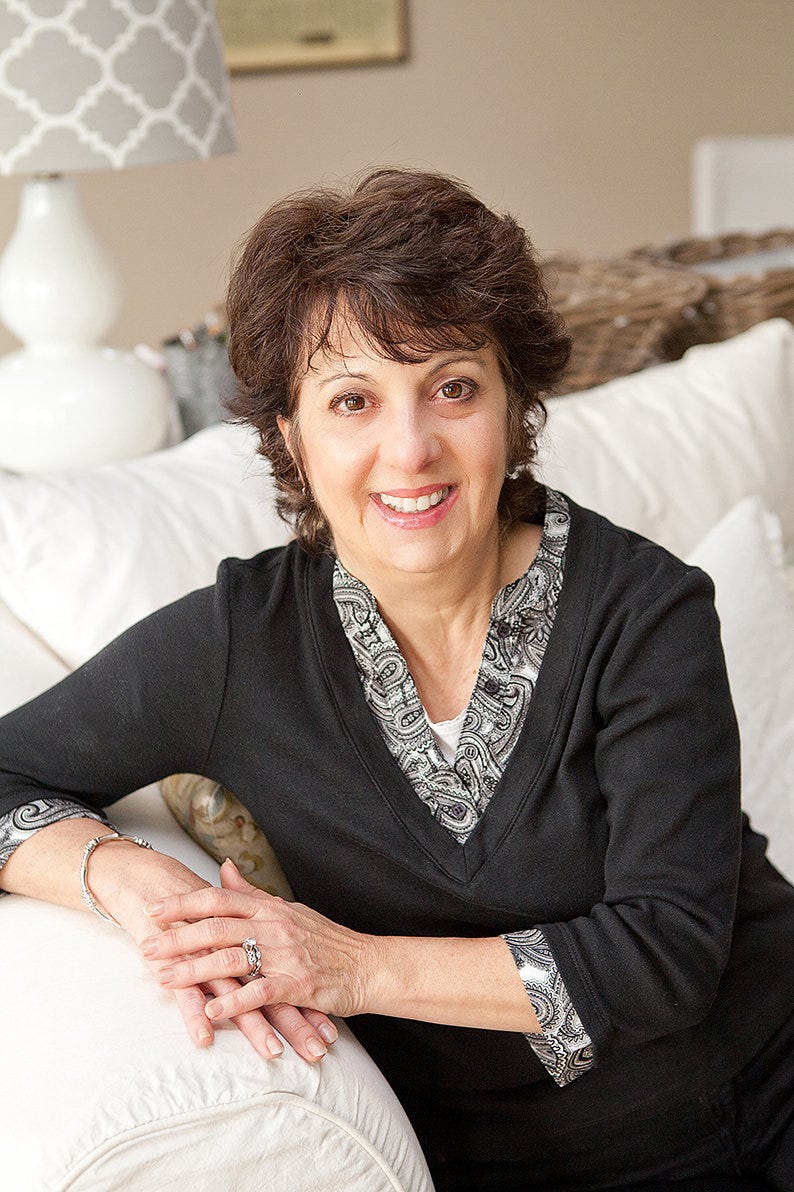Interview with the author
featuring Angela Calabrese - author of Year of the Meatball
Have you always loved literature? What were some favorite books you read as a middle grader?
Yes!!! Books captivated me at an early age. The fact that words on a page could be powerful enough to evoke a variety of emotions always enthralled me.
I remember relishing the book LITTLE WOMEN and feeling totally invested in the four sisters who were the main characters. I never wanted that story to end.
ARE YOU THERE, GOD? IT’S ME, MARGARET was another favorite of mine.
Describe your book in ten words or less for people who are just learning about it.
It’s about loyalty, endearing friendships and being true to yourself.
When did you decide to start writing? Did you find that it happened easily?
What was your process?
I decided to start writing more seriously when my daughters were young. My goal was to become a published author. As a reading specialist, I observed the books my reluctant readers were willing to read (and there weren’t many). That knowledge equipped me to produce stories that even my pickiest student might enjoy.
It was “easy” to craft stories since I always had a flurry of ideas. Back then, I didn’t realize how much more there was to this process.
I sent a few of my manuscripts to various publishing houses and got hundreds of rejections until… that wondrous day when one of my short stories was accepted by a small publishing house. What an exciting moment to think someone liked my writing enough to want to publish it! This gave my confidence a major jolt.
As far as my process goes, if an idea percolates in my brain, I jot it down in a notebook. Any sensory details, colorful words, or character traits I can think of are also included. Then I organize my thoughts in a more cohesive way with a simple outline just to keep me on track. I usually write a pretty crummy first draft and allow it to marinate for a day or two (or month) before I work on it again (you’d be surprised how much a piece can be improved upon when you set it aside and look at it with fresh eyes). Rounds of revisions continue until I feel like it’s pretty polished. Then it’s time for my critique group to dig in. They usually make suggestions I would never have thought of myself.
What are some lessons you learned from this writing process?
I’ve grown to appreciate the tremendous value of revising. I can’t stress that enough. A manuscript must be put through the wringer before it’s ready to be submitted. As a novice writer, I sent out manuscripts way too early before they were cultivated and fine-tuned. I’ve since developed more patience (most of the time) to scrutinize plot points, character development, word choices, and sensory details to make certain each scene is vivid and clear.
Do you have any odd writing habits?
During the summer, I carefully climb onto my pitched roof, lounge chair in tow, and sip a glass of home brewed iced tea while brainstorming story topics. (JUST KIDDING!)
Seriously, I don’t have any odd writing habits as of now. If that changes, you’ll be the first to know.
What has been the toughest criticism you’ve received as a writer?
I remember an editor critiquing one of my novels and having nothing positive to say about it. She tore every sentence to shreds. My confidence was rattled. It took me a while to bounce back and admit to myself that some of her feedback was valid. It was her deliverance that stung. I didn’t give up on that story but revised it considerably. That manuscript went on to win two writing contests and is presently out on submission.
What has been the best compliment you’ve received?
Two of my critique partners (who are stellar writers) were confident early on that YEAR OF THE MEATBALL was worthy of being published. They thought that my main character, Joey, was carved out well and had a genuine and funny persona.
Do you use real life experiences for your books?
Yes, oftentimes I’ll weave in parts of my own experiences or use them as a springboard to ignite other avenues.
Many of my quirky family members are sprinkled in YEAR OF THE MEATBALL but that will be our little secret.
Do you have any tips for homeschoolers wanting to be authors? Anything you would tell your younger self?
I sure do.
Tip #1: Read tons of books. Analyze why a favorite novel of yours was so captivating to read. What literary devices made you want to turn those pages? Did the author use short sentences sprinkled in with longer ones? Were there metaphors and similes? Was it told in first person? Third? Was the dialogue believable and if so, why? Study the structure and style.
#2: Join a writer’s club and write a LOT. If there are local writing workshops or online ones, GO FOR IT! I wish I had gone to writing conferences much sooner than I had. I didn’t even know they existed.
#3: Don’t let anyone burst your writing aspirations BUT constantly hone your craft and embrace feedback that resonates with you. If three writer pals point out the same scene in your book or story that may need some tinkering, examine it more critically and have an open mind.
What is your favorite line from your book?
“You are brighter than gold glitter on a mooncake, Bobbi Ming.”
Are you working on anything new?
I absolutely am! I read about an actress named Marilu Henner who had the ability to remember almost every day of her life in detail! The condition is called hyperthymesia (also referred to as HSAM). Very few people have this type of incredible memory. I used my “WHAT IF” tactic (which is a neat trick to help generate writing ideas when you’re stuck).
· WHAT IF a sixth grader had this condition? Would it give her an advantage in life or create problems?
· WHAT IF there was a mystery to solve and it required remembering details from a certain day of this character’s life?
· WHAT IF her friends think she’s a freak?
The more I explored possible scenarios, the more my story took shape. It’s almost finished!




